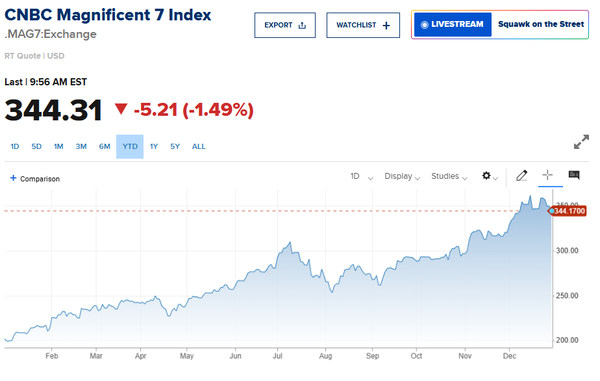Everything you need to know about banking, bailouts, Cyprus and confidence
Good morning and welcome back to the land of anarchy where contracts and guarantees don’t mean anything anymore.
Over the weekend, as I’m sure you’ve already heard, Cyprus and the EU and the IMF (and the US Treasury which is part of the official decision-making body at the IMF) all decided that it was in society’s best interests to confiscate the money in people’s checking and savings accounts. Not all of it, at least not yet.
But as there’s a ton of confusion and misdirection about what this latest round of theft of private capital and descent into anarchy really is, let’s walk through how this works in real terms.
Picture a giant bank which gets billions in covert and overt subsidies and bailouts every year. Because the banking sector and its giant corporate offshoots have blown themselves up and needed repeat bailouts and ever more subsidies to stay in business, the government now “guarantees” that your customers’ savings and checking deposits will always be there when they go to need them. The banks supposedly keep all those “deposits” completely separate from any trading, securitizing, Treasury-buying and bonuses paid out every year.
I’m actually talking about the banking sector in Cyprus and in every country in the EU, but the very same principles and concepts and lack of rule-of-law applies here in the US with our Too Big Too Fail banks and the FDIC insurance “guarantee” that you think you’ve got for your savings and checking accounts up to $200,000.
But every major bank in the world, courtesy of the housing bubble collapse in the US in 2006-2008, literally has billions upon billions of dollars of losses from bad loans, bad securitized investments, bad trading and from bonus payouts for the people who generated all those losses.
So the government and the regulators are supposed to enforce the law which would mean making sure all the people who risked their money for an ownership stake in these banks should lose everything. The bondholders would most or lose all of the money they risked lending the bank money. And the people who saved their money and deposited in the bank’s vaults with the understanding that they were guaranteed to get every dime back would indeed see that lawful guarantee followed out.
But what has happened instead for the last five years is something else entirely and with this Cyprus “tax” development over the weekend, it has been taken to a new explicit level of wealth confiscation.
This time in Cyprus, what they’ve proposed to do to help the banks and the government there continue to pretend they aren’t completely bankrupt already, is to take 7% of the money out of everybody’s checking and savings accounts if they have managed to save less than about $100,000. If they’ve saved more than that, the government and the banks will take about 10% of your money and wire into the banks’ own accounts and allow the bank to continue to pay interest to its lenders, pay dividends to its shareholders, and pay bonuses to its incompetent executives.
Everybody who saved their money for the future has to pay. Everybody in the country who hasn’t saved any money in a bank, gets to keep all their wealth. Sounds familiar, doesn’t it?
You see, for the last five years, the US and EU governments have been stealing trillions of dollars of taxpayer funds for the banking system as follows:
- 0% Interest rates (ZIRP) – The governments lend the banks money at 0% interest and then borrow it back from the banks at 2-3% or even in the EU’s case, 10% plus. It’s riskless profits for the banks and it costs the taxpayers trillions every year.
- TARP and other direct bailouts – The governments have literally written dozens of trillion dollar welfare checks for the banks shareholders to distribute in dividends and bonuses since 2008.
- Implicit TBTF guarantee – Recent studies show that the TBTF banks save tens of billions of dollars in interest costs every year because the marketplace (their lenders) knows that the governments will bail them out if the bank runs into any major problems.
- The banks pay out less than 1% interest on deposits while charging up to 30% plus for interest on loans.
- MF Global and its TBTF trading partners stole billions of dollars directly from the accounts of farmers and ranchers to gamble on EU-debt derivatives and lost. And nobody went to jail.
- Banks are paying you .25% on the money in your checking account while inflation of 5% plus (or whatever the real inflation rate really is) makes every one of those dollars worth less on a daily basis.
- Fannie Mae and Freddie Mac get saddled with trillions in losses as the banks cherry pick the securities they buy and sell these taxpayer-funded entities.
- The banks get to sell trillions of dollars of worthless mortgage and government debt securities to the Federal Reserve at full value through the magic of Quantitative Easing.
- The banks got the regulators and accounting boards to allow them to mark most of their assets to whatever value they think they should be worth whenever they need them to be worth it.
There’s more of course. But you get the idea. The biggest issue with the Cyprus development is that apparently the financial sector and the governments it supports and which support it are so short of actual capital, that they are resorting something that everybody can so clearly see is a confiscation of private wealth.
I see a lot of passionate debates about whether this Cyprus wealth theft is a big deal. Cyprus is a tiny economy (Apple does more sales in two months than Cyprus’ entire annual GDP) and its economy isn’t the issue here. It’s the breach of trust in the system that the rulers and bankers are poking so obviously that is really the issue. The entire banking system is a giant confidence game at this point and that is a perilous thing.
I’m sticking with my high-cash/well-hedged/lots-of-financial-sector-short positioning for now. I don’t like the pitches for the long side just yet. I think there sure could be more panic to come in the next couple weeks at least.




